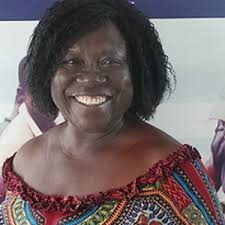
Rural women farmers cry for inclusive policies
A policy dialogue at Hohoe in the Volta Region to advocate an increase in women farmers participation in policy formulation and implementation has been held.
The dialogue was organised by Development Action Association (DAA), a Ghanaian association of rural women farmers that works to reduce poverty by empowering its members to be self-reliant by participating fully in their own development.
Organised in partnership with German Association of Rural Women, with funding from Deutsche Gesellschaft für Internationale Zusammenarbeit (GIZ), it also brought together policy regulators and key actors along the agriculture value chain.
The Executive Director of the Organisation, Mrs Lydia Sasu, said despite perceptions that uneducated rural women were unable to make contributions in policy formulation; they possessed a deep level of firsthand knowledge on varied issues which could be significant and profitable at the decision making table.
She is therefore advocating such dialogue to be undertaken in the local language in order to have a holistic exchange of ideas which would go a long way to transform the sector.
The Queenmother of Wli Agoviofe in the Hohoe Municipality, Mama Dzitri II, who was present at the dialogue said it was imperative that women were prioritised in the sector.
She admitted that challenges such as inaccessible roads were affecting product marketing and purchase which had largely led to post harvest losses.
She also lamented unfair market pricing of farm produce, especially by middlemen which had robbed hardworking rural women farmers of being well-off economically.
The Queenmother, however, said the challenge would be a thing of the past should the government set up marketing centres in various rural enclaves and ensure broad and fair standard pricing.
Concerns
Among some of the issues that the women raised were that they were continuously excluded from policy formulation and implementation processes along the agricultural value chain.
They said although women farmers played very significant roles in the agriculture sector, from production, harvesting, processing to utilisation, they were conspicuously missing at the decision making table.
According to the women although several intervention were being implemented by past and present governments and other policy formulators to improve the sector, rural women farmers were still economically stuck at the bottom of the ladder.
